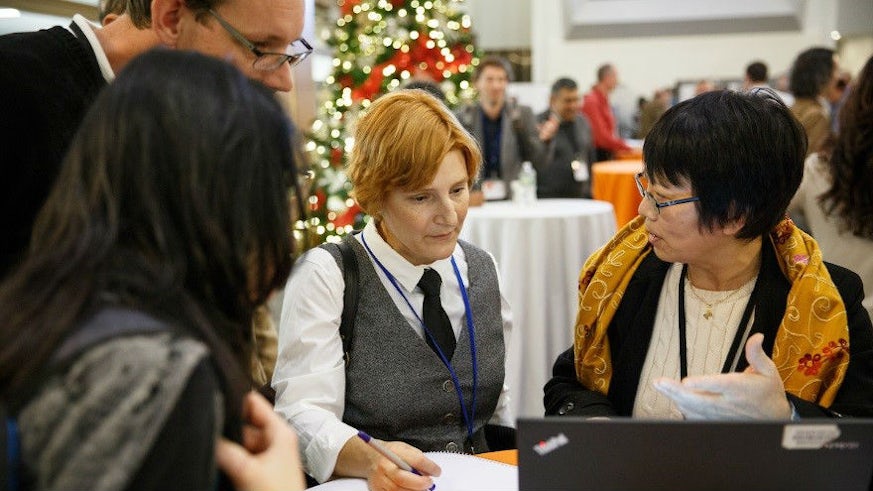Professor Kathy Triantafilou joins the GSK Immunology Network
9 May 2018

Professor Kathy Triantafilou from the School of Medicine is one of five academics worldwide selected to take part in a new collaborative immunology research programme operated by the global healthcare company, GSK: the Immunology Network.
As a member of the Immunology Catalyst sabbatical programme within the GSK Immunology Network, Kathy has joined GSK’s world class R&D organisation in Stevenage where she is working for the next three years alongside GSK scientists, with the freedom to pursue and publish her own fundamental research. She receives research funds, post-doctoral support and is actively supported in setting up collaborations with the GSK R&D organisation. At the end of her three-year sabbatical she will receive a grant to help her return to academia.
Kathy’s work focuses on the molecular mechanisms of inflammation, which is the body’s natural protective response to any injury, infection or irritation. However, if uncontrolled, inflammation can cause damage as seen in several inflammatory diseases such as rheumatoid and osteoarthritis as well as Alzheimer’s. The research will explore the role of sensors of the innate immune system in inflammatory conditions.
“This is an exciting time for me,” said Kathy. “The Immunology Catalyst provides me with the support and freedom to work on ‘blue-sky’ projects while also giving me the chance to learn about the decision-making processes behind the development of new technology: for example, how research translates into a marketable product. This insight is a valuable career mentorship for me. Furthermore, I have established a robust research relationship between GSK and Cardiff University which will foster increased publications as well as increased opportunities for collaborative scientific research.”
Kathy’s expertise align well with the drug discovery research of GSK as the company has identified immunology as a key area of focus that impacts most of the therapy areas in which it is currently seeking to advance drug targets: respiratory disease, immuno-inflammation, infectious disease, oncology and vaccines. This offers plenty of opportunities for scientific collaboration and shared learning to benefit both fundamental biology and applied drug development research in the growing field of immunology.
Paul-Peter Tak, GSK Research and Development, Senior Vice President of the Immunology Network, said: “The Immunology Network will give us access to the brightest scientists in the world who are free in their thinking and who can go into paths that we’ve not thought of yet. We want to make sure that they are connected to the scientists that discover and develop medicines at GSK.”
Share this story
The School is a major international centre for teaching and research, and committed to the pursuit of improved human health.
